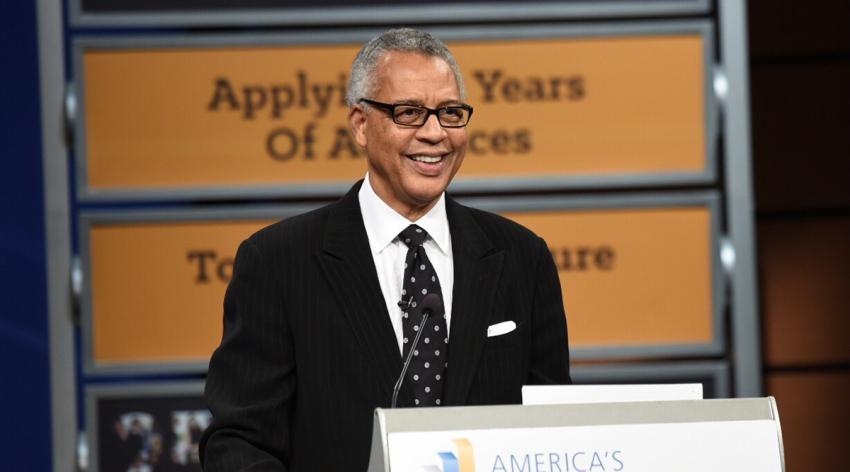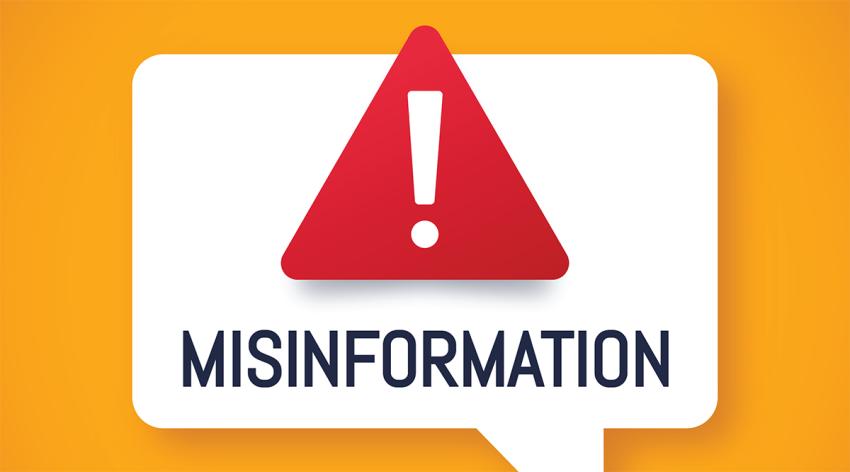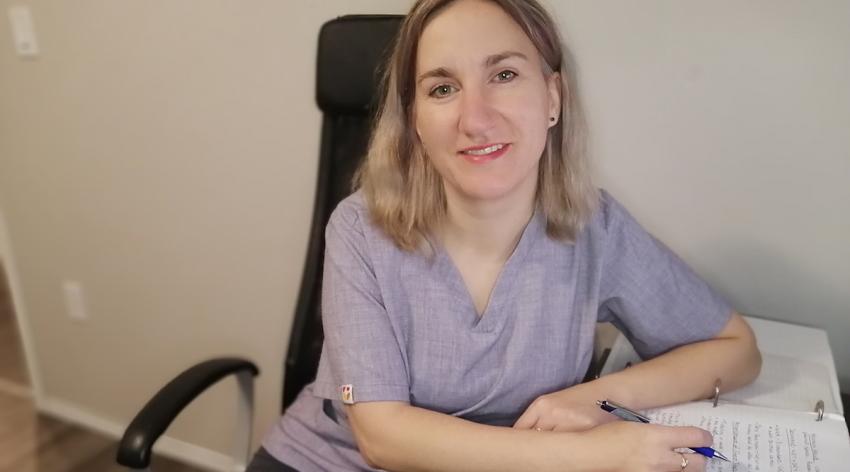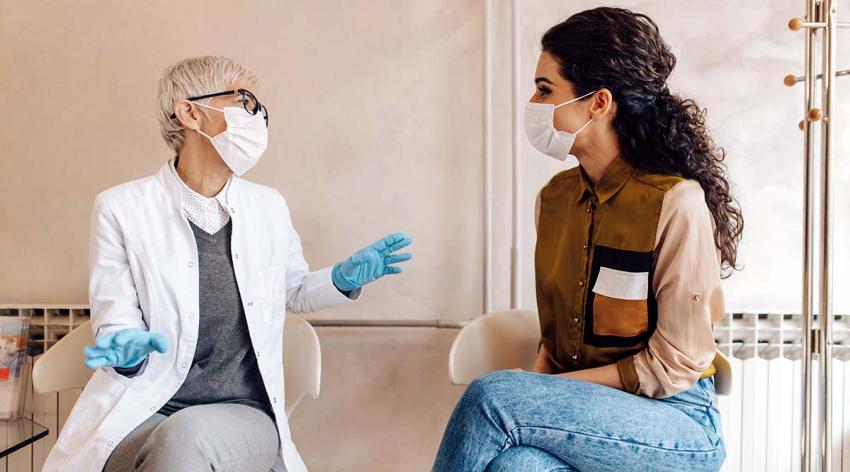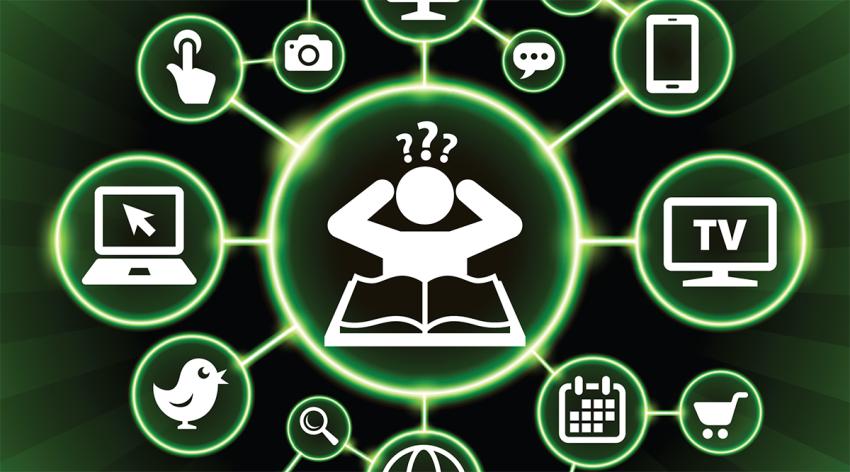Mitigating Health Misinformation Through Medical Education
The spread of false and misleading health information has dire consequences for the health of communities across the nation. During the COVID-19 pandemic, misinformation led to the use of unproven (and sometimes dangerous) treatments, the politicization and mistrust of public health measures such as masking and social distancing, and widespread distrust of the COVID-19 vaccines. That same vaccine hesitancy has now spread to other routine vaccinations, fueling a resurgence of measles and other vaccine-preventable diseases.
Although the pandemic has shaken confidence in science and medicine among some, it has also provided an opportunity for health care providers to work with patients and the public to address health misinformation.
The AAMC believes clinicians and learners across the health professions are uniquely positioned to work with their patients and public audiences to address health misinformation. Health care providers are often viewed as trusted sources of information and can hold positions of esteem and credibility.
It is the responsibility of the academic medicine community to ensure current and future health care providers have the tools necessary to dispel misinformation and to collaborate with patients and communities to mitigate the harm caused by it.
On this page:
Health Professions Education Curricular Innovations Grants Program
The AAMC, through a cooperative agreement with the Centers for Disease Control and Prevention (CDC), engaged in a strategic initiative to increase confidence in COVID-19 vaccines and to address medical misinformation and mistrust through health professions education. Through the CDC-funded initiative, the AAMC awarded five subgrants to academic medical centers to develop competency-based, interprofessional strategies to mitigate health misinformation and to integrate these approaches into the curricula for health professions students.
The schools below were selected as the Health Professions Education Curricular Innovations subgrantees in 2022. The projects selected offer innovative educational approaches and strategies and well-developed plans to ensure that the skills gained are transferable to various health topics.
| Institution | Project Title |
|---|---|
| Donald and Barbara Zucker School of Medicine at Hofstra/Northwell | Patients Vulnerable to Misinformation: An Evidence-Based Approach to Address Root Causes Through Medical, Nursing, and Pharmacy Student Training |
| Florida International University Herbert Wertheim College of Medicine | Addressing Vaccine Misinformation: An Online Motivational Interviewing Module and Telehealth Standardized Patient Exercise to Address Misinformation With COVID-19 Vaccine-Hesitant Individuals |
| Jacobs School of Medicine and Biomedical Sciences at the University at Buffalo | Mitigating Medical Misinformation and Mistrust Through Effective Team Communication Using Innovative Competency-Based Interprofessional Instructional Design Strategies |
| Maine Medical Center/Tufts University School of Medicine — Maine Track | Interprofessional Education and Collaborative Learning: A Novel Training Tool for Addressing COVID-19 Health Misinformation |
| University of Chicago Pritzker School of Medicine | Training Interprofessional Teams to Improve Scientific Communication and Address Health Misinformation in Diverse Communities |
The projects are described in more detail in the RTI Press occasion paper Equipping Health Professions Educators to Better Address Medical Misinformation and the Vaccines Voices articles “Get to Know the AAMC Innovations Grant Winners” and "Countering Misinformation with New Curricular Strategies."
Health Misinformation Resources and Toolkits
During the second year of the grant program, subgrantees developed curricular toolkits of competency-based, interprofessional strategies that address health misinformation through education. These toolkits serve as a collection of resources that health professions educators across diverse institutional settings can use when developing their own curricula. The tools are generalizable to enable use and implementation across a variety of programs.
MedEdPORTAL Mitigating Misinformation in Health Care Toolkits:
- Addressing COVID-19 Misinformation Through Interprofessional Learning and Collaboration: A Standard Patient-Based Educational Toolkit
- Addressing Vaccine Hesitancy and Misinformation: Online Simulation and Standardized Patient Cases for Interprofessional Students
- Communication Techniques to Facilitate Vaccine Misinformation Conversations: A Role Play Curriculum for Medical Students
Subgrantee teams came together for a collaborative workshop held at the AAMC in September 2023 to work together and share information about their unique projects and the specific resources they will make available through the toolkits. Each of the programs describes their innovative tools in the video below.
AAMC Collaborations
The AAMC collaborates with several organizations to promote and develop curricula and programming. For example, the AAMC is a founding member of the Coalition for Trust in Health & Science, which aims to build trust in health and science. For additional information or questions about this work, please contact curricularinnovation@aamc.org.
These projects were funded in part by a cooperative agreement between the Centers for Disease Control and Prevention (CDC) and the Association of American Medical Colleges (AAMC) entitled AAMC Improving Clinical and Public Health Outcomes through National Partnerships to Prevent and Control Emerging and Re-Emerging Infectious Disease Threats (FAIN: NU50CK000586). The Centers for Disease Control and Prevention is an agency within the Department of Health and Human Services (HHS). The information included in these projects does not necessarily represent the policy of CDC or HHS and should not be considered and endorsement by the Federal Government.
